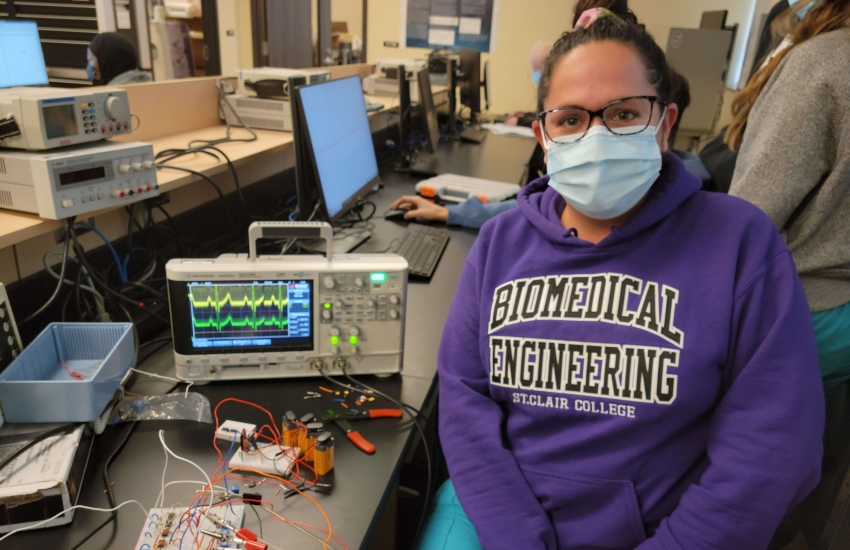
Students in the Biomedical Engineering Technology program are pushing the limits of applied knowledge as they look to make a significant impact in their roles as "roadies" of the healthcare system.
St. Clair BMET professor James Linton was formerly a Director of Equipment Services for the Canadian Blood Services and Director of Biomedical Technology at Woodstock Hospital. In his time as an educator, he admits the workload in BMET is large but what you are learning at St. Clair is knowledge and skills which saves lives every day.
"We are the roadies of the healthcare system. No one ever thinks about us until they are in a hospital and they really need our help," Linton said. "You may work on IV-pumps all day, and it is a grind, but you know that every one of those pumps helped extend someone’s life. You’re not just getting a good paycheck, hours and a pension. You can say that someone gave their grandmother a hug because you did your job to the best of your ability."
A crop of third year BMET students are pushing to speed up the process of medical professionals accessing and reading echocardiograms (ultrasound produced images of the heart) on a smartphone by modifying current technology to have Bluetooth capability.
Krista Rusenstrom, 37, is a member of the student group, SC Instruments, that built an echocardiogram which is Bluetooth capable. Rustenstrom said it was a collaborative effort which led to success in the project to make some sort of modification to the ECG machine.
"Two of our group members are very strong in coding so we wanted to add a coding application to our project," said Rusenstrom. "We started bouncing around ideas and one group member suggested we try to make it Bluetooth capable, so we decided to go for it. Our teachers thought we might be overconfident, but we put the work in, the blood, sweat, tears and failures to make it happen."
Graduates of the BMET program may find numerous employment opportunities within the healthcare field due their crucial skill set, integrating medical technology, financial stewardship and patient safety. Linton said it's commonplace for BMETs to be key advisors to hospital CEOs, helping them make crucial decisions which help save millions of dollars.
"If you are a CEO of a hospital, you’re generally a nurse or a doctor or accountant - you don’t know the equipment," Linton said. "And if you are building a new wing or need to buy a new fleet of IV-pump equipment … they need someone who is familiar with the equipment. Someone with an advanced diploma from our program and an entry level job will have their input heavily weighted in multi-million-dollar decisions."
The Bureau of Labor Statistics has reported that over the next 10 years, the Biomedical Engineering Technology profession is expected to grow 61.7%. More information on the BMET program can be found here - Biomedical Engineering Technology - Equipment and Devices | St. Clair College (stclaircollege.ca)
- Brett Hedges